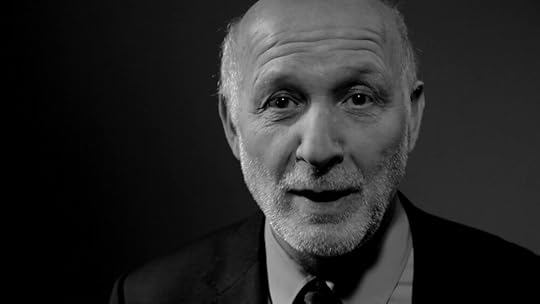Mentalisation - a boring name for a beautiful idea
What would it be like if you couldn’t understand the minds of others? Would it be like being locked in a dark room? Would it feel as if the things you needed – food, affection, peace and quiet, stimulation – came out of nowhere, if at all? Would it be as if there were monsters in the darkness?

Professor Peter Fonagy
This was the picture I had in my head after listening to Peter Fonagy on Radio 4’s The Life Scientific. He is one of the psychoanalysts behind mentalisation-based therapy (MBT), which focuses on the need to understand minds – our own and other people’s – to have good mental health.
To ‘mentalise’, you must be able to stand back from your own thoughts and feelings rather than simply experiencing them, and from the thoughts and feelings of others rather than simply reacting. This provides a “protective buffer” that cushions you from emotional pain. Without that buffer, says Dr Fonagy, many people lose control and become victims.
Dr Fonagy’s ideas are deeply rooted in attachment theory. This is the idea that people’s adult behaviour is affected by the care they receive in the first months and years of life.
If the ‘attachment’ is healthy and consistent, the child learns to trust others to understand him or her, and grows up able to understand others. But when the adult is abusive, the child learns not to expect understanding. He or she learns not to be curious about what others are thinking and feeling. In the devastating words of Dr Fonagy, if you had been abused would you want to understand your abuser’s thoughts?
Declaration – I have business with mentalisation theory. My father read up on it in an effort to understand difficult people (interestingly, for a few months after this was fresh in his mind, he became the most empathic and intuitive I have ever known him). I borrowed his books and fell in love with mentalisation.
I love it for the way it isolates the psychic violence that underlies all more tangible forms of violence. I love it for the way that it explains so much – why someone who is clearly sensitive can be aloof and unkind, why trying to resolve a falling out with certain folk just makes it worse, and why the people in your life who are most hurtful to others are themselves deeply hurt by relatively small things.
Currently I am most excited at the idea that mentalisation – or a difficulty with mentalising - is not one thing, it’s many. It makes some people into aggressors, but it makes others into victims. It‘s been linked to genocide in a masterful book, The Killing Compartments by Abram de Swaan. But it’s also been identified as a defence mechanism for coping with trauma. It can, in fact, indicate someone who is kinder and more sensitive than they can handle, and who has suffered great pain.
Some opponents of mentalisation feel that it is reductive, but I think it is merely simple. It insists, like the rest of psychoanalysis, that we expand beyond concrete, linear concepts of reality and embrace the dynamics of mind - a complex, unpredictable field of possibilities that defies ordinary logic.
Mentalisation is also is one of the themes of my book, The Splits. What is it like when we live in a world where minds are denied? What is left of people who cannot navigate the world of interacting psyches? Could they act like zombies, or be mistaken for zombies, when in fact what is going on is much more interesting?
The hardest passage I had to write was about a character, Michael, who seem to have a borderline condition of some kind with aspects of moral madness (I use these old fashioned terms because I’m not an expert, and because he doesn’t conform to any modern psychiatric diagnoses). It was one of the greatest challenges I have ever faced as a writer, to put myself in the mind of someone so destructive and understand their pain. I’m still not sure I did it justice.
But when I hear Dr Fonagy say that it is how we treat each other as a community that determines mental health I feel I did something good by making the effort. If you really want to know what I think it’s this: mentalisation should be taught in schools. In the meantime, maybe someone can read my book and think a little more carefully about that ridiculously vulnerable person they know who is always getting in a state about the slightest thing, or that wildly overemotional, unreasonable person who causes so much pain.



